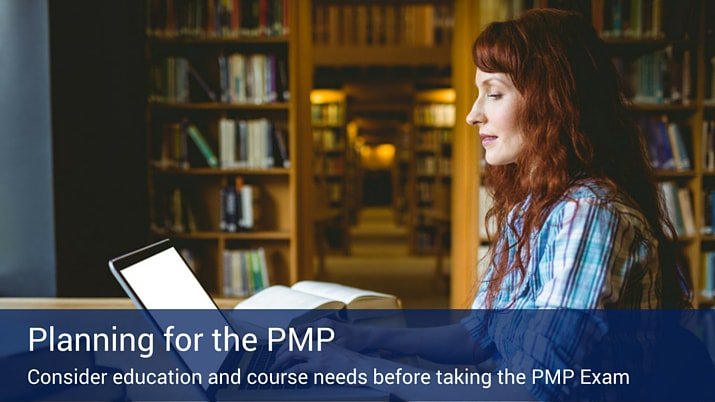Should I Self-Study for the PMP®?

Last Updated October 11, 2023
The Project Management Professional (PMP)® certification is generally regarded as the industry standard for aspiring project managers. Before professionals can register for and take the PMP® exam, there are several prerequisites and planning steps to consider.
Registration for the PMP® exam requires at least 35 hours of project management education. PMP® certification applications are divided into one of two groups. For professionals with a four-year degree, at least 4,500 hours of related project management experience is required. For professionals with secondary education, such as a high school diploma or associate’s degree, the experience requirement is at least 7,500 hours of experience.
The Education Requirement
It is important to note that the requirement for 35 hours of project management education is not met by self-study. Formal education is required, such as at a community college, four-year college or university, or at a reputable training firm. Online courses are also approved to meet the education prerequisite.
The education requirement can be met through one long course or through several courses that together add up to 35 contact hours. A ‘contact hour’ is specifically an hour of instruction. Lunch breaks or time spent on assignments or travel are not included in this total.
Documentation and Course Content
Course content must be focused on project management, including topics such as project budgeting, procurement and risk management. Courses outside of project management, such as business strategy or leadership, for example, would not count toward the prerequisite.
Applicants must prove with official documentation that they have met the 35-hour requirement and that the courses taken to meet requirements fall within the approved topics. Many institutions offer certificates of attendance that detail the name of the course, the passing grade, the number of contact hours and the details of the institution attended. Any failed courses cannot be used to satisfy PMP® certification prerequisites.
Studying Through an Online Course
When looking for an online course to meet the 35-hour education requirement, it is important to remember that not all courses may be created equal. To start, consider institutions that offer a complete PMP® certification preparation course to ensure that all requirements are met. Complete courses offer the peace of mind that, upon course completion, the application will be fully complete, provided the work experience requirement is met.
Suitable online courses should also offer video and audio resources that can be viewed at convenience. Having multiple resource formats available has the advantage of allowing coursework on multiple devices. Beyond audio and video resources, the course should offer workbooks of assignments and a sampling of authentic PMP® exam questions so that applicants can get a feel for the exam.
PMP® Exam Prep with Villanova University
Self-study may be an option for individuals who have already met the 35-hour education requirement, but in most cases, formal education is the typical path. Villanova University offers several courses in project management that can be used to satisfy the education requirement, as well as a dedicated PMP® Exam prep course for focused practice. In each course offering, professionals have the benefit of formal academic structure, trusted documentation and a faculty with expert knowledge of PMP® exam parameters.




